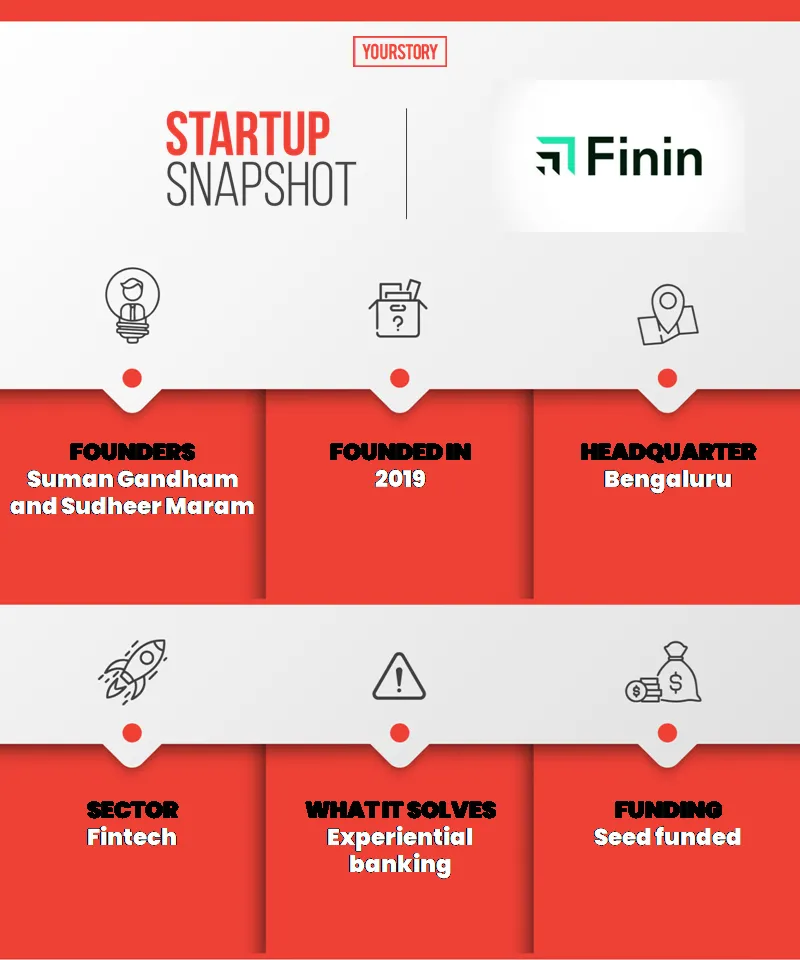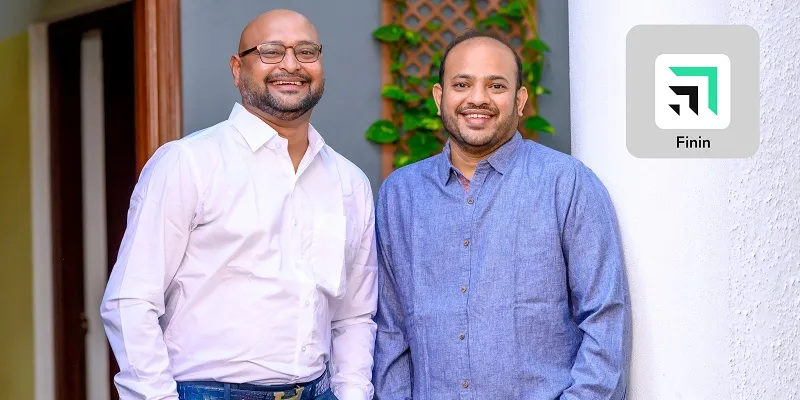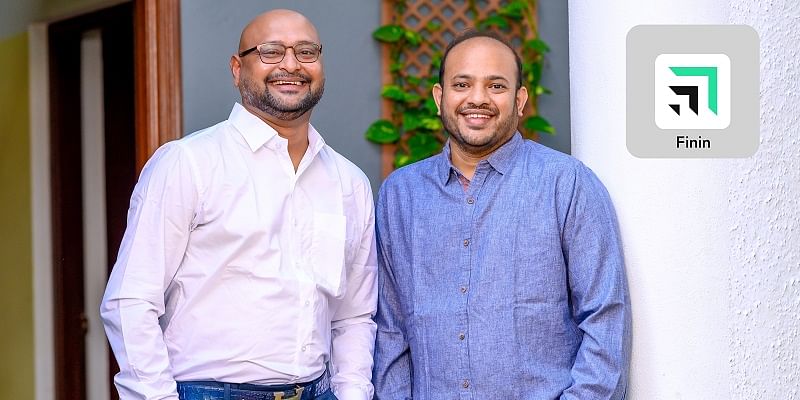Going to the bank has become passé, courtesy of the many digital banks that have cropped up over the last couple of years.
The rise of neobanking has taken this to the next level, with these all-digital banks leveraging state-of-the-art technologies to win over consumers with easier, quicker, and more efficient financial services.
Bengaluru-based neobank Finin aims to help create the future of banking by providing a “reimagined banking experience” with easy savings, a unified account view, and automated money management.
The app-based digital bank claims to offer a customised experience by focusing on every individual user’s lifestyle and financial reality. This lets it offer solutions, services and recommendations suited to each of the client’s specific requirements.

Snapshot
The unified account – and expense – view offers a holistic view of every bank account and pending payments every month.
“We have features that will remind users to cancel subscriptions or about refunds and bill payments so that they have full control over their money and don’t lose a single rupee to unnecessary transactions,” says Suman Gandham, Co-founder of Finin.
He says Finin aims to offer a 360-degree view of their money, paired with recommendations that will nudge them to save more, make wiser spends, ensure smarter investments, and get a better understanding of their financial habits.
Getting started
School friends Suman Gandham and Sudheer Maram didn’t know they would start up together.
Suman spent two decades in Europe, working after finishing his course at IT University of Copenhagen. He worked for a long time with Nekko Capital as a VC for fintech startups.
Sudheer joined the University of Madras and graduated in IT engineering in 2003. He worked in a retail and manufacturing company, and also spent six years in Infosys.
After gaining a thorough understanding of the fintech ecosystem in Europe along with the banking and finance industry, Suman decided to return to India in 2018 to set up Finin with Sudheer. They started the company with an investment of Rs 50 lakhs in 2019.
Suman says,
“There is a common misconception that India is underbanked, but in reality it is overbanked. The difference is that all banks offer the same solution and lack hyper-personalisation. Numerous financial services have ventured into lending and borrowing, wallet payment systems etc. but none of these solutions offer a hyper-personalised solution based on customers’ financial needs and lifestyle requirements.”
How it works
One can open an online savings account with Finin after completing the KYC, after which a debit card is dispatched. The user can now start transacting – they can use the new savings account and link other bank accounts to get a consolidated view of all their money.
Finin offers added features such as Smart Budgets and Goals, which will allow the user to create a spending habit and stay on top of their monthly spends. The Bill Payments feature helps them stay on top of their payments. “All this comes with clever recommendations and the incorporation of nudge theorem to enable users to make wiser financial decisions each and every day,” Sudheer says.
The neobank, which was launched in 2020, claims that more than 18,000 people are using the app. Finin’s first few customers were members who participated in the beta version to give expert feedback.
Finin aims to be the go-to banking, financial management, and payment channel for Indians. After the iOS and Android launch, the founders noticed that the most difficult-to-crack areas are regions where the usage of smartphones is low.
“It would be wrong to say we have not faced our fair share of difficulties. We did hit roadblocks when it came to finding the right banking partner. But we have definitely navigated through it in the most optimal way and have partnered with SBM India,” Suman says.
The startup is focusing on multiple revenue streams, including its technology platform and debit cards.
The potential and way ahead
There seems to be a phenomenal opportunity for this business on the back of increasing digital literacy, rising smartphone penetration, and cheaper internet connections.
According to InvestIndia, the overall transaction value of digital payments is estimated to jump from approximately $65 billion in 2019 to $140 billion in 2023. Data released by Zion Market Research reveals that the global neobank sector was worth $18.6 billion in 2018, and is estimated to expand between 2020 and 2026 at a compounded annual growth rate (CAGR) of about 46.5 percent, generating approximately $394.6 billion by 2026.
“As far as we know multiple startups are working to harness this space as we speak. There is a huge interest in neobanks and Finin the consumer side and we are collaborating with them closely to provide them with the solution they have been waiting for,” Sudheer says.
Consumer banking is still a new playground for neobanking and fintech startups like Open, Slice, Lazy Pay, and now even Razorpay, are operating in this space. Finin claims to stand apart by offering a consolidated view of bank accounts to “save, invest, and manage in a smarter and simpler way”.
For now, the startup aims to grow the customer base. After that, the founders will focus on their product roadmap to start building the investment piece and other features that focus on customers’ economic independence and financial wellbeing to a customer. “That is the simple formula to grow and scale.”

Finin founders
The founders have raised an undisclosed amount as their seed round through Unicorn IndiaVenture, Point One Capital, and Astir Ventures. They did not want to disclose revenues at this stage or their strategy to get to 100,000 users.
“The idea is to make the app so informative and intuitive that users find it productive to check the app on a daily basis to get a 360-degree view of all of their finances. We take security very seriously and are constantly making sure that both, user data and money, are 100 percent safe,” Suman says.





![Read more about the article [Startup Bharat] Raipur-based Eloo is reimagining toilets for women on Indian highways](https://blog.digitalsevaa.com/wp-content/uploads/2022/04/Featureimages-newdeck28-1650459535607-300x150.png)




